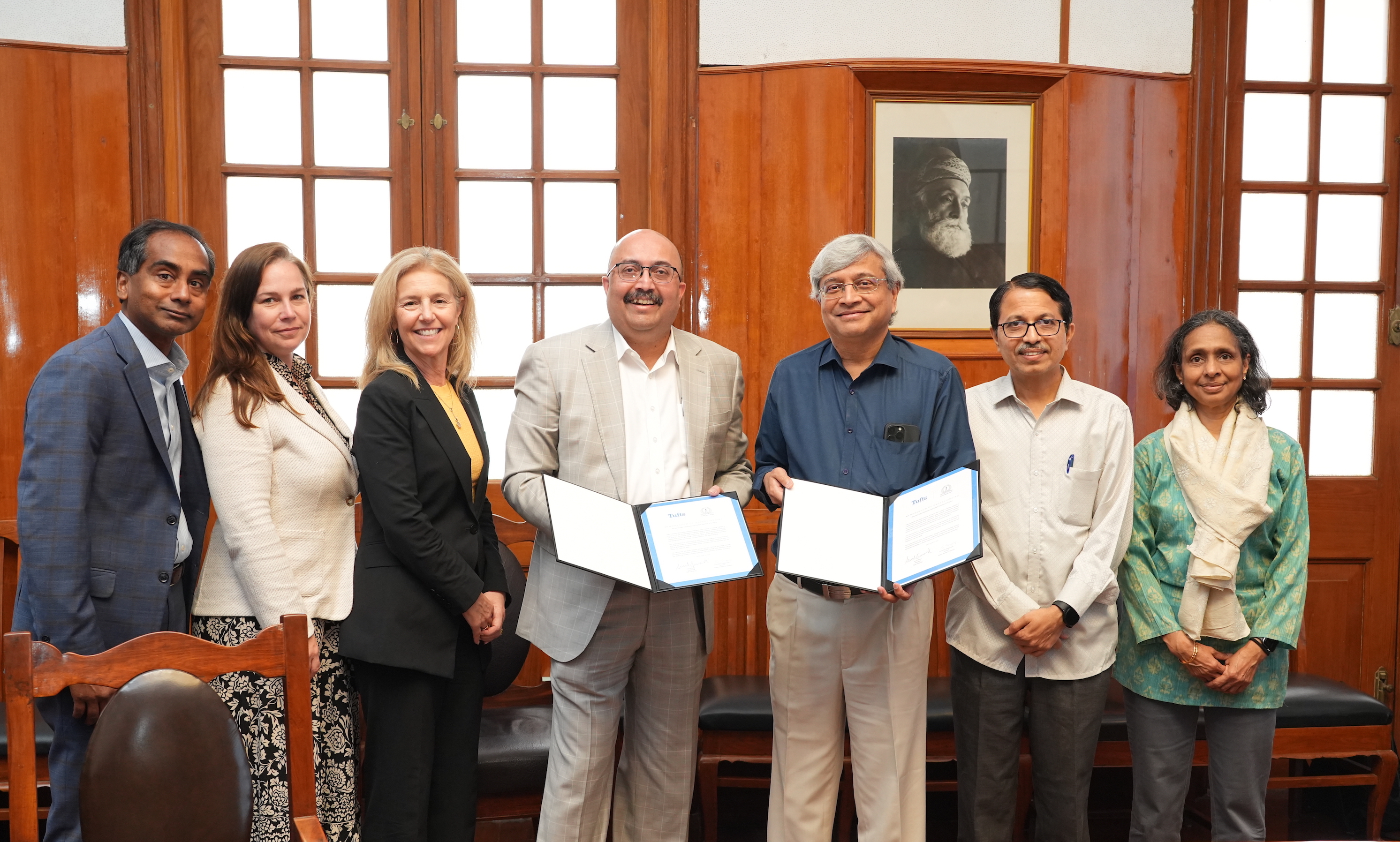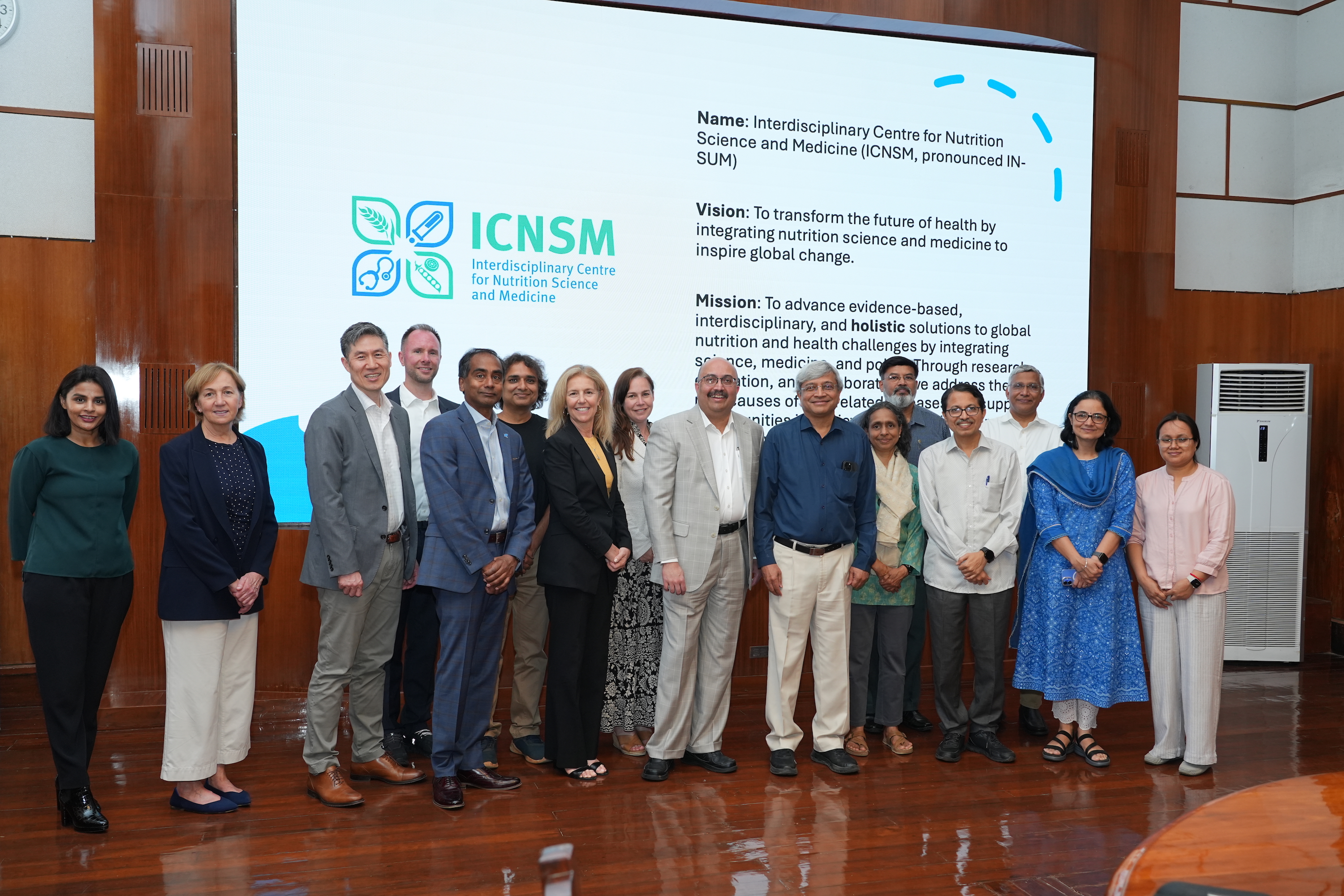23 June 2025

The Indian Institute of Science (IISc) has signed a Memorandum of Understanding with Tufts University to foster academic and research collaborations, specifically in the area of nutrition science and medicine.
The agreement, signed on 23 June 2025 in the presence of Sunil Kumar, Tufts University President and Govindan Rangarajan, Director of IISc, establishes a framework for the development of a range of possible initiatives jointly pursued by the two institutions.
Foremost among the collaborations envisioned is the creation of a centre of excellence focused on nutrition science and medicine. To be housed at IISc, the proposed centre, known as the Interdisciplinary Centre for Nutrition Science and Medicine (ICNSM), represents the vision of President Kumar and Director Rangarajan to synergise the complementary strengths of the two institutions.
Among that centre’s earliest priorities will be to initiate research across categories (basic, applied, clinical, and translational) occurring at both the Gerald J and Dorothy R Friedman School of Nutrition Science and Policy at Tufts University and IISc. This will, in turn, create opportunities for collaboration, visiting scholars at both institutions, and innovative research opportunities.
Possible areas of research focus include ageing; nutritional immunity; cancer; cardiovascular, metabolic and kidney disease; nutrition and infectious diseases; precision nutrition; gut microbiome and immunity; obesity; food-as-medicine; plant-based nutrition; health impacts of ultra-processed food; nutrition and technology (including the use of sensors and AI); and preventative nutrition.
In addition, Tufts and IISc see opportunities to collaborate through the centre on large-scale nutritional intervention studies focused on, for example, chronic disease, anaemia, hypertension, malnutrition, and metabolic disease. The centre also anticipates the co-development of nutrition-specific competencies for physicians and scholars who are trained at IISc, an important first step in creating curriculum and education standards that will transform healthcare. Nutrition-specific competencies could be woven into multiple areas of provider education and could be obtained through nutrition courses and degrees that currently exist within the Friedman School’s educational offerings and developed specifically in collaboration with IISc.
“We envision a multifaceted and flexible approach to training that equips all emerging physician-scientists and health researchers with a strong foundation in nutrition science,” said Christina Economos, Professor and Dean of the Gerald J and Dorothy R Friedman School of Nutrition Science and Policy at Tufts. “Nutrition plays a critical role in the prevention, management, and treatment of both communicable and non-communicable diseases. Ongoing research and discovery are essential to optimising care.”
Equally as important, according to Economos, is understanding the broader societal and structural factors – including food access, availability, and affordability – that shape dietary patterns. “This systems-level perspective enhances patient-provider relationships and enables more personalised, practical, and equitable clinical guidance,” she said.
The cent also plans to establish a joint PhD supervision programme as well as a tele-nutrition system for knowledge transfer at the level of primary care delivery.
Navakanta Bhat, Dean of IISc’s Division of Interdisciplinary Sciences and Professor at the Centre for Nano Science and Engineering said: “The centre will be anchored in the medical school at IISc and will leverage the deep expertise at IISc in basic sciences and engineering technology. This will offer a unique platform for researchers from IISc and Tufts to co-develop nutrition-focused healthcare solutions for India-US and the rest of the world, by addressing the entire disease spectrum arising out of malnutrition as well as obesity.”

CONTACT:
Office of Communications, IISc | news@iisc.ac.in



